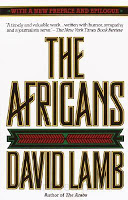
Here in America it’s Mother’s Day, and I’ve been enjoying the good wishes that have been emailed to me from friends in hemophilia around the globe. I received a great gift: my luggage! It went missing for three days following my return from Africa a few days ago.
My trip to Kenya was wonderful, full of rugged rides into the countryside to visit the mothers and sons, families with hemophilia. In Kenya, as in most developing countries I have studied, it’s often the mothers who are the primary caretakers of those with hemophilia. Actually, it’s true of any country I have studied. For whatever reason, culture, biology or psychology, mothers are deeply connected to their sons with hemophilia. They also become the primary advocates, and often the hemophilia leaders in their communities, and sadly, the self-promoted whipping post for when things go wrong.
I thought about our roles as mothers while in Morocco. I landed there a week ago, around midnight, and promptly started feeling grinding pain of some sort of parasite. Lovely. I missed most of Morocco, though I was there for three days. At least one thing was very memorable: a visit from a young man with hemophilia, Mohammad.
He traveled four hours by train to see me, and to pick up a donation of factor I had for him. We sat and chatted for over an hour, and shared green tea, which was delicious and strong. Mohammad is soft-spoken, respectful, and highly intelligent. He speaks three languages fluently, and studied physics but had to drop out of the PhD program when he missed two months of school due to a psoas bleed. Actually, he only mentioned “a bleed,” and when I think of what bleed could possibly keep you out of school that long, I knew it was a psoas bleed. A knee bleed you can hobble around on crutches; an elbow bleed, you can still walk. Shoulder bleeds are terribly painful, but again, you can walk. A psoas bleed means you cannot move. So he laid in bed for two months, trying not to move, with no factor. His professor thought he was lazy or lying, and no longer allowed him in the program.
Mohammad is the first in his family with hemophilia. He was diagnosed at age 2. His father was a miner, now retired. His mother never worked. At age 12 he had his first factor infusion… and then nothing until Project SHARE sent him his second infusion one month ago.
Mohammad was having an elbow bleed as we spoke. I thought maybe he should take a dose of the 14,000 IUs I brought him, but no; he would tough it out. “This will last me about a year,” he said smiling, holding the bag of factor. 
Such simple gratitude, for an amount of factor that would last us two months, and the average adult US patient on prophy with hemophilia a week.
I thought of his mother today. What it must be like to see your only son suffer so much, giving up his academic dreams, knowing how intelligent he is, being able to do nothing to control his pain. So many young men with hemophilia are stoic, because for them the pain of seeing their empathic mothers suffer is greater than the pain of the bleed. They learn to mask it. Indeed, Mohammad was limping but hid it well, from many years of practice. I wondered if his mother was as stoic? She has done a marvelous job, because despite the odds, he has survived, without complaint, without bitterness, and with so much respect for his parents.
This Mother’s Day we can think of all those mothers worldwide who suffer so much when their child has no medicine, like those in most countries of Africa. We can honor them today as heroes, empathic fountains of love and strength for their children, and soldiers in the war against poverty and pain when there is no factor.
Great Book I Just Read
The Africans by David Lamb
This in-depth and comprehensive book about the Dark Continent was banned in several African countries when it was published, for its no-holds-barred look at the culture, politics, history and development of Africa. Lamb spent four years traversing the continent, speaking with people on the streets as well as presidents. Lamb successfully weaves fascinating stories in with geopolitics and economics: this is no travelogue. It’s a serious piece of journalism that mostly leaves his own story out, and focuses on the subject. Skillfully told, you will admire the resilience of the African people, who have survived the Arab slave trade, the invasion of colonialists, the dividing up of their continent by Europeans, their own tribalism which eats at them like a cancer, idealogical battles about Marxism vs democracy, and lastly, their own corrupt leaders. You admire the Africans, and pity what they have endured, and come away fascinated with the complexities of this amazingly beautiful land and its beautiful people. Published in the 1980s, it does stand the test of time, but you’ll need to read more about Africa to get caught up, as much has happened in the 20 years this was written–both positive and negative. Four stars.


2 thoughts on “For Mothers of Children with Hemophilia”
Happy Mother's Day to all the mothers of the hemophilic patients. Those mothers are used to the pain and the feeling of helpless. They try hard to keep their sons safe but they can not do much to stop some unexpected bleeds. I am sure the factor you donated to Mohammed is going to not only stop his bleeds but also relief his mother’s worry and the pain of feeling helpless. Every vial you donate to any patient becomes a source of joy to his entire family. God be with you and flourish your philanthropic work.
Tamer Hanna
Egypt
All hemophilia moms are supermoms. They are superhuman. God must have made them that way. Or God empowered them to develop into superhumans. Hemophilia moms shine so much that we dads must appreciate that we are allowed to reflect that great shining light just as the moon reflects the shining light from the sun. My son's mother should have a place in the Hemophilia Hall of Fame, along with the thousands of other hemophilia moms around the world.
Jim Ols.
Chicago